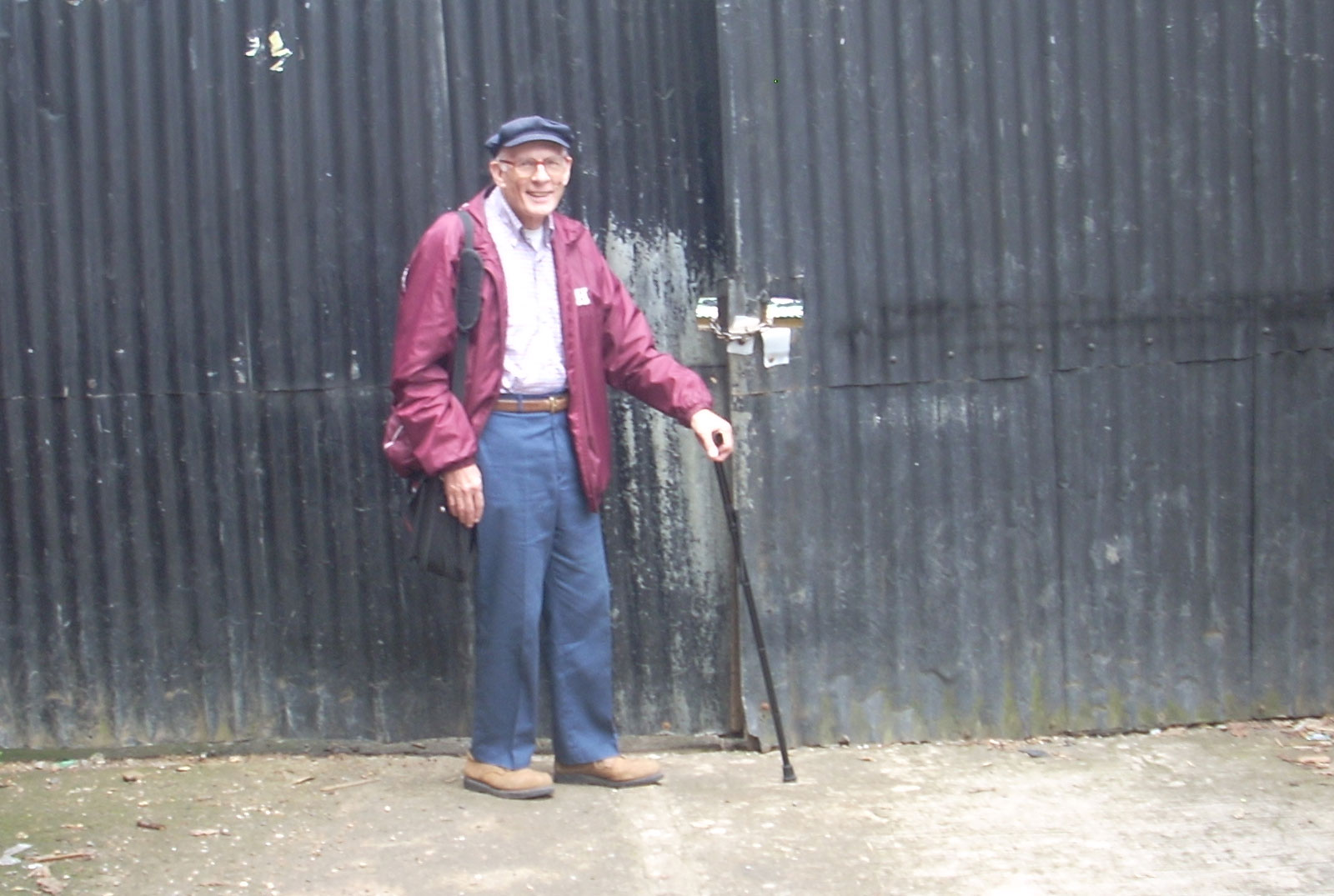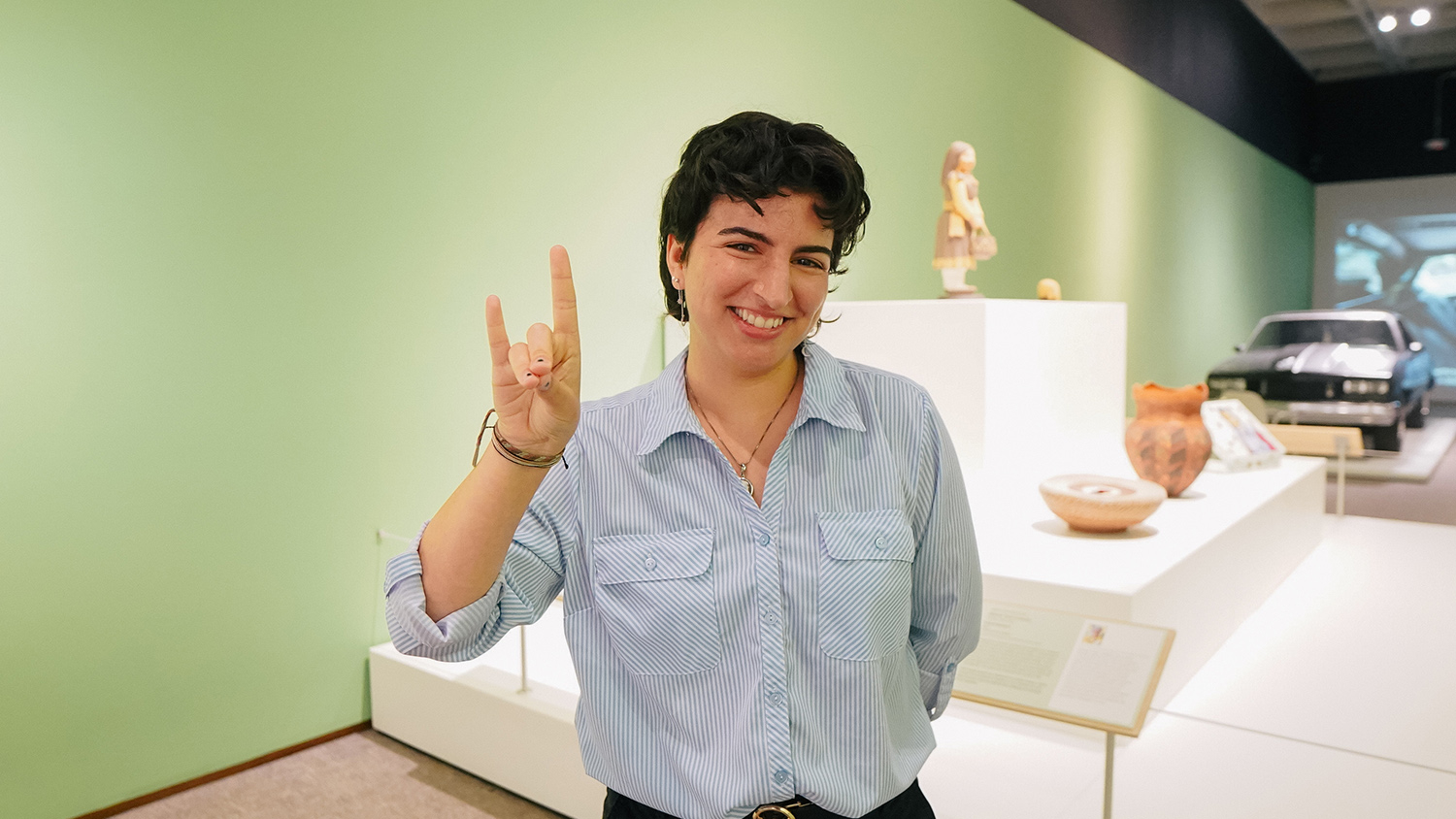Adventurer in a Tweed Jacket


The adventurer in a tweed jacket. That’s what some students called David Greene when he was director of NC State’s arts studies program. Although he may have hung up the tweed jacket when he retired in 2006, Greene is still a very active adventurer. He’s also a prolific scholar and author, a gifted and giving musician, a highly skilled and sensitive translator, and a dedicated and cherished volunteer.
In his retirement, Greene dedicates considerable time to improving the lives of those around him: the children and villagers of eastern Guatemala, where Greene lives, teaches and writes for two thirds out of each year. For his work there, NC State’s Association of Retired Faculty recently recognized Greene with the Friday Award for Distinguished Service in Retirement.
Greene was first drawn to the people and colonial architecture of Guatemala when he led a study abroad trip there with NC State students. The pull was strong enough to take him back again and again.
Now he spends much of his time volunteering with TEACH (Toward Educating Americas’ Children), a Virginia-based nonprofit that supports the education of Mayan children in Guatemala. “Our efforts to do business in another language, in another country and in another culture are challenging, to say the least,” says TEACH board member Shari Zamarra. “David is fluent in Spanish, and very knowledgeable about the Mayan culture.

“He has embraced TEACH wholeheartedly, providing us with hundreds of hours of valuable assistance, above and beyond what anyone could expect from a volunteer. He has been our translator, our guide, our arranger of transportation and lodging for four years. He has done this with persistence, accuracy, and most of all, with caring.”
Zamarra says Greene’s perspective as an educator has been invaluable in helping the nonprofit evaluate its programs. And in addition to leading groups of students, he mentors some of the program’s teachers. “The hospitality and generosity he has extended to us and to those we serve has been considerable,” Zamarra says. “And his service is truly exceptional.”
Greene travels by jeep, boat and horseback to remote spots to interpret for the Minister of Education in meetings with non-Spanish-speaking village elders and Maya students. He raises and contributes funds for students to continue their education beyond that provided by TEACH. His work has facilitated academic programming and financing to build a middle school serving a group of remote villages.
“I feel that the work we’re doing is very, very important,” says Greene simply. “This is what needs to be done.”
Greene says NC State students prepared him for what he’s been doing in retirement. “I learned enormously from my students and colleagues at NC State,” he says. “My relationships with Guatemalan students are similar to those I had with students at NC State. I enjoy the rapport, and I want every one of them to realize that learning is fun.”
At NC State, Greene was the founding director of the arts studies program. From 2000 to 2004, he also headed the CHASS Division of Multidisciplinary Studies (now Interdisciplinary Studies).
His reputation as the adventurer in a tweed jacket may have grown out of a study abroad program he established in Vienna and ran for 15 years. He applied a pedagogical method called ‘city as textbook’ that immerses participants in language, art, architecture, environmental issues, music, theater, political science, technology and human values. “Vienna provides a major stimulus for a student to learn,” he says. “Being there raises a lot of questions for them that we can then explore.”
“He loved Vienna,” says Teresa Amentt Jennings (B.S., textile chemistry, ’01), who participated in 1999. “He enjoyed showing us the city and really made it come alive. My experience made me a strong advocate for study abroad. I tell people they have to do it.”
The Vienna: City as Textbook program is still going strong, attracting 30 students each summer.
Greene is not content to just volunteer with TEACH in Guatemala. On any given day you might find him giving organ lessons, translating a book of local photographs, organizing a recital, or teaching English at the Central American Seminary of the Syriac Orthodox Church.
And then there’s the scholarship. Greene has written nine books in retirement, including The Theology of Handel’s Messiah, Beethoven’s Credo, and Verdi’s Dies Irae: How Listening to Sung Theology Leads to the Contemplation of God in 2012, The Imagining of Community in the Arts of Guatemala: Weaving, Folk Tales, Marimba Performance, Contemporary Painting (2010) and The Imagining of Community in Works of Beethoven, Verdi, and Shostakovich: Musical Means for Envisioning Community (2010).
“David’s publishing record is outstanding,” says Helga Braunbeck, German professor and assistant dean for Interdisciplinary Studies and International Programs. “He’s also the best storyteller I’ve ever met. But what has been very clear over time is how steadfast he is in making things possible for other people. He has always worked to create opportunities and connections for others.”
By Betsy Rhame-Minor
- Categories:


